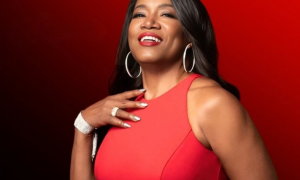
Louis Armstrong House Museum
HALF a century ago, when America was having problems with its image during the cold war, Adam Clayton Powell Jr., the United States representative from Harlem, had an idea. Stop sending symphony orchestras and ballet companies on international tours, he told the State Department. Let the world experience what he called “real Americana": send out jazz bands instead. Jazz Ambassadors A photography exhibition of those concert tours, titled “Jam Session: America's Jazz Ambassadors Embrace the World," is on display at the Meridian International Center in Washington through July 13 and then moves to the Community Council for the Arts in Kinston, N.C. There are nearly 100 photos in the show, many excavated from obscure files in dozens of libraries, then digitally retouched and enlarged by James Hershorn, an archivist at the Institute of Jazz Studies at Rutgers University. There's Dizzy Gillespie in 1956, charming a snake with his trumpet in Karachi, Pakistan. Louis Armstrong in '61, surrounded by laughing children outside a hospital in Cairo. Benny Goodman in '62, blowing his clarinet in Red Square. Duke Ellington in '63, smoking a hookah at Ctesiphon in Iraq.
The idea behind the State Department tours was to counter Soviet propaganda portraying the United States as culturally barbaric. Powell's insight was that competing with the Bolshoi would be futile and in any case unimaginative. Better to show off a homegrown art form that the Soviets couldn't match -- and that was livelier besides. Many jazz bands were also racially mixed, a potent symbol in the mid to late '50s, when segregation in the South was tarnishing the American image.
Jazz was the country's “Secret Sonic Weapon" (as a 1955 headline in The New York Times put it) in another sense as well. The novelist Ralph Ellison called jazz an artistic counterpart to the American political system. The soloist can play anything he wants as long as he stays within the tempo and the chord changes -- just as, in a democracy, the individual can say or do whatever he wants as long as he obeys the law. Willis Conover, whose jazz show on Voice of America radio went on the air in 1955 and soon attracted 100 million listeners, many of them behind the Iron Curtain, once said that people “love jazz because they love freedom."







![Full Moon [Feat. New York Voices, Mark Egan]](https://s3.amazonaws.com/allaboutjazz/coverart/large/a07a6f1d5edcd6c801f0e1c3b527da37.jpg)



















